International
Black chefs carve out a place in Brazilian cuisine
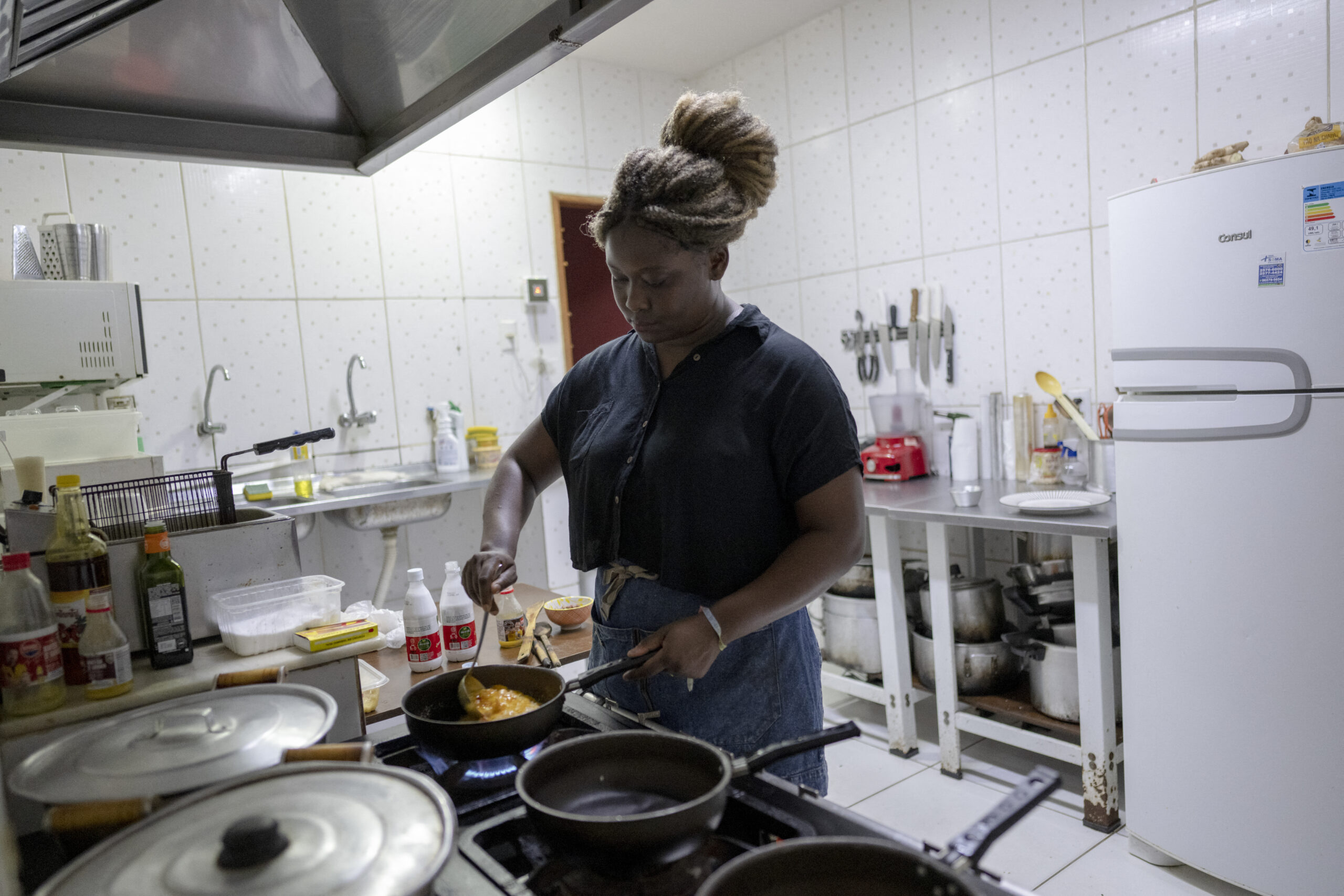
| By AFP | Louis Genot |
From a tiny restaurant on a dead-end street come the enticing aromas of chicken, pork and shrimp as an award-winning chef slowly steams dim sum — the finger food typical of Cantonese cuisine.
This is not Hong Kong but rather Rio de Janeiro. And the cook is a black Brazilian.
“Many people ask me, ‘Where is the Chinese chef?’” Vladimir Reis, 38, says with a chuckle. He opened Dim Sum Rio almost two years ago in Laranjeiras, a wealthy neighborhood of the city.
“They ask me why I make Asian food and not African or Brazilian food,” said Reis. “But I am free to do what I like, without being restricted by what people think I should do because of the color of my skin or the country I come from.”
Things are going very well for this burly man with thin dreadlocks down to his shoulders. His dim sums are wildly popular and he has been named a winner in a new competition called the Black Gastronomy Prize.
This contest, whose first edition was held in November, honors the best black restaurant industry people in Rio in an array of categories such as waiter, sommelier, sous chef and pastry chef, all in a country where racism is deeply ingrained.
“There are many nice stories, and the time has come to acknowledge all of this talent,” said Breno Cruz, a university professor who created the prizes.
‘White universe’
Best restaurant honors went to Afro Gourmet, run by Dandara Batista, 37, who serves up African dishes in Grajau, a working-class neighborhood of Rio.
In the small kitchen of the eatery she opened in 2018, she fixes a dish called hauca rice — originally from Nigeria and featuring shrimp, dried meat and a golden sauce that is a blend of coconut milk and palm oil.
The menu also boasts a dish from Senegal called mafe and a South African one called chakalaka. Batista highlights where her creations come from by adorning them with little flags corresponding to the country.
Batista said she always felt a strong connection to the food of the northeastern city of Bahia, where her father’s family comes from.
“But when I did some research I realized there is a strong African influence on Brazilian cuisine in general,” said Batista, who wears her thick hair in braids.
Batista has been cooking since she was a girl but thought of it as a career option only after working for many years as a journalist.
“Gastronomy was always linked to a white universe, so I did not see myself there,” said Batista.
She switched jobs four years ago after taking a class in gastronomy.
She lamented the fact that there were no courses on African cuisine, so she learned how to make dishes from countries far from Brazil such as Angola, Cape Verde, and Sao Tome and Principe.
‘No reference point’
Like Batista, Reis’s life was also influenced by things not Brazilian, in his case a trip to Singapore. “When I saw dim sum the first time I thought it was marvelous, so delicate. Right away I said to myself, ‘we don’t have this in Rio.’”
Reis, born and raised in Rio, gives a personal touch to his dishes, using cassava and palm oil, which are basic ingredients in Brazilian and African cooking. At Dim Sum Rio, he decorates his dishes with edible flowers and green leaves of cabbage to cover them, like little roofs.
Reis had worked in several restaurants but never made it all the way to chef. Although he has a strong resume, he says that in job interviews white colleagues with less experience would always beat him out.
“They always wanted me to be a sous chef, or a basic cook,” said Reis, who grew up in a favela, or slum, in central Rio called Santa Teresa.
In Brazil black or mixed-race people account for 54 percent of the population but only 30 percent of leadership positions in companies.
Reis says he would have started his own business earlier if he had seen more black chefs in the news media.
“I only saw black chefs on reality shows from other countries. Here in Brazil I had no reference point. The job market has opened up in the last few years but racism is still very much a part of society.”
International
Authorities capture CJNG financial chief in international airport operation

A man identified as the main financial operator of the powerful Jalisco New Generation Cartel (CJNG) was arrested Thursday at Mexico City’s international airport, authorities reported.
The individual, named by Mexican media as Óscar Antonio Álvarez, was apprehended during an operation involving the army, navy, National Guard, police, and the attorney general’s office, according to a joint statement.
Álvarez is considered the primary financial operator of a criminal group originating in Jalisco, and the capture took place at Benito Juárez Airport as he arrived on a flight from Barcelona, Spain.
Authorities stated that Álvarez faces charges of organized crime and money laundering, specifically for receiving and transferring illicit funds. His work with the CJNG reportedly included purchasing properties and managing businesses in the tequila and livestock sectors.
According to El Universal, Álvarez was directly under the command of Rubén Oseguera Cervantes, “El Mencho”, the cartel’s top leader, for whom the U.S. offers a $15 million reward.
The CJNG, which operates throughout Mexico and in various parts of the world, was designated earlier this year as a “foreign terrorist organization” by the U.S. government.
Álvarez was handed over to the federal public prosecutor to determine his legal situation, the report added.
International
Jair Bolsonaro sentenced for leading armed criminal plot after 2022 election loss

Former Brazilian President Jair Bolsonaro, 70, has been sentenced for leading an armed criminal organization that attempted to cling to power after losing the 2022 elections to President Luiz Inácio Lula da Silva.
The alleged coup plot, which reportedly included a plan to assassinate Lula, was not carried out due to lack of support from the military leadership.
By a four-to-one vote of the judges overseeing the case, seven co-defendants, including former ministers and military chiefs, were also convicted.
“A criminal armed organization was formed by the defendants, who must be sentenced based on the factual circumstances I consider proven,” said the final judge to cast a vote, Cristiano Zanin.
Bolsonaro, who has been under house arrest since August, did not attend the court hearings, citing health issues.
Reacting on X, Senator Flavio Bolsonaro, the former president’s son, said: “They call this a trial a process whose outcome everyone already knew before it began.”
One of the first international reactions came from the White House. Former U.S. President Donald Trump called the sentence “very surprising,” while Senator Marco Rubio, U.S. Secretary of State, stated that the United States will “respond accordingly” to the “unjust” ruling.
International
Poland invokes NATO Article 4 after russian drone incursion

The violation of Polish airspace by Russian drones on Wednesday triggered the most serious clash between Russia and NATO since the start of the war in Ukraine, prompting Poland to invoke Article 4 of the NATO Treaty, which calls for consultations among allies.
Polish Prime Minister Donald Tusk addressed Parliament on Wednesday, describing an unprecedented “aggression” in which at least 19 Russian drones breached Polish airspace, creating a situation that the Prime Minister described as “the closest to an open conflict since World War II.”
Speaking at the start of an extraordinary Council of Ministers session, Tusk stated that “this is the first time Russian drones have been shot down over the territory of a NATO member state, and that is why all our allies are taking the situation very seriously.”
Although he affirmed that “there is no reason to claim that we are in a state of war,” he labeled the incidents as “a large-scale provocation” and ordered the invocation of NATO’s Article 4 to call for consultations with allied nations.
Tusk also noted on X (formerly Twitter) that he had received “not only expressions of solidarity with Poland but, above all, concrete proposals to support the country’s air defense” during discussions with European leaders throughout the day.
The Polish leader specifically mentioned conversations with the leaders of the United Kingdom, Italy, Germany, and the Netherlands—Keir Starmer, Giorgia Meloni, Friedrich Merz, and Dick Schoof—along with French President Emmanuel Macron, Ukrainian President Volodymyr Zelensky, and NATO Secretary-General Jens Stoltenberg.
-
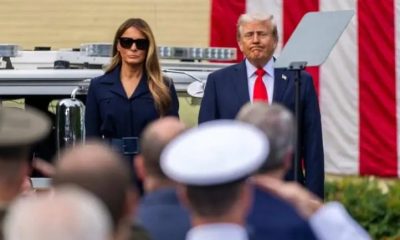
 Internacionales1 day ago
Internacionales1 day agoTrump leads Pentagon ceremony honoring September 11 victims
-
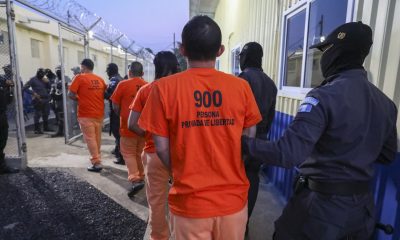
 Central America4 days ago
Central America4 days agoGuatemala arrests 32 Mara Salvatrucha members in massive security operation
-
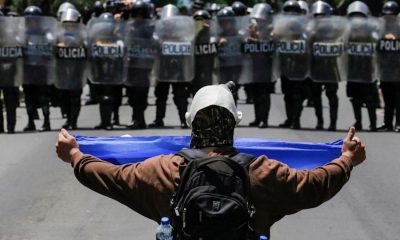
 Central America4 days ago
Central America4 days agoNicaragua’s government expels bishops, priests, and nuns in religious persecution
-

 International4 days ago
International4 days agoUNICEF: Over 500,000 people affected by Afghanistan earthquake, urgent aid needed
-
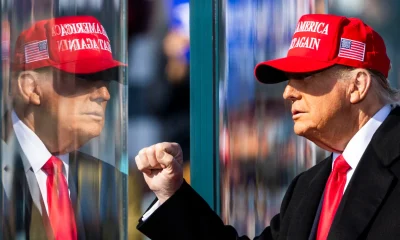
 International4 days ago
International4 days agoTrial begins for man accused of attempting to kill Trump at Florida Golf Course
-
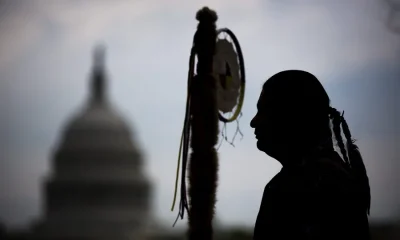
 International3 days ago
International3 days agoWhite House calls israeli strike in Qatar “unfortunate”
-

 International3 days ago
International3 days agoMexico denies participation in DEA operation targeting Sinaloa Cartel
-

 Internacionales3 days ago
Internacionales3 days agoIsrael accepts Trump’s ceasefire proposal, demands Hamas disarmament
-

 International1 day ago
International1 day agoPoland invokes NATO Article 4 after russian drone incursion
-

 Central America1 day ago
Central America1 day agoHonduran president Xiomara Castro suspends activities due to influenza
-
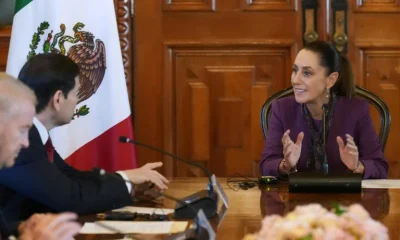
 International2 days ago
International2 days agoMexico seeks U.S. extradition of two suspects in 2014 Ayotzinapa disappearances
-

 Central America1 day ago
Central America1 day agoEl Salvador to host World Cup qualifiers vs. Guatemala and Panama at Estadio Cuscatlán
-
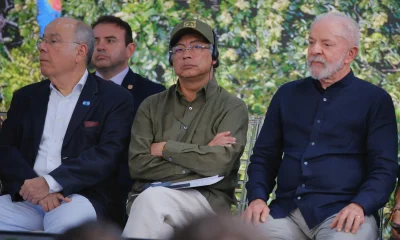
 International3 days ago
International3 days agoColombian president Petro rejects U.S. naval operations as potential threat to Venezuela
-
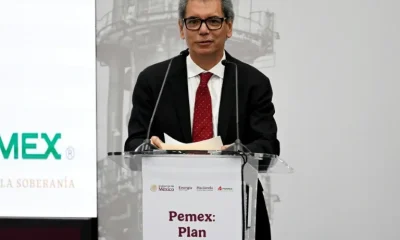
 International2 days ago
International2 days agoMexico proposes 8% Tax on violent video games to fund health and security programs
-
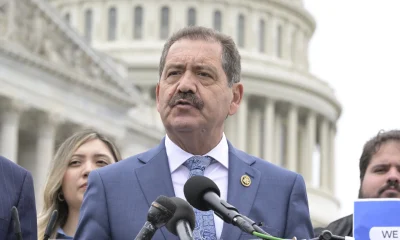
 International2 days ago
International2 days agoCongressman García calls Trump immigration raids in Chicago a “trap” for National Guard deployment
-

 International14 hours ago
International14 hours agoAuthorities capture CJNG financial chief in international airport operation
-

 International14 hours ago
International14 hours agoJair Bolsonaro sentenced for leading armed criminal plot after 2022 election loss


















































































